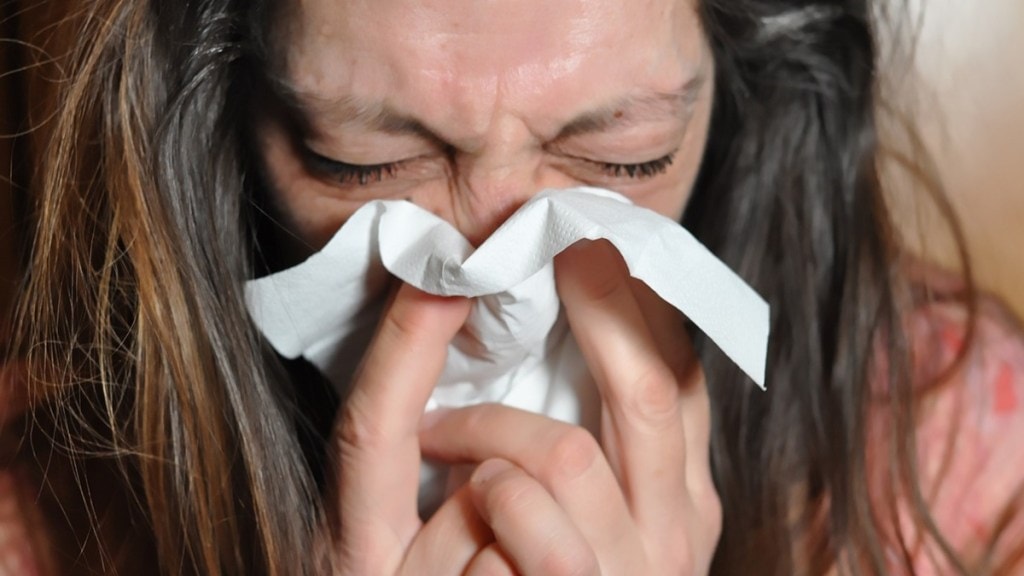The flu season is back in the National Capital and more and more people are reporting symptoms like runny nose, sore throat, coughing bouts, high fever, blocked sinuses, headache and swollen tonsils.
Dr. Suranjit Chatterjee, Sr. Consultant, Internal Medicine, Indraprastha Apollo Hospitals told Financial Express.com that in recent weeks, there has been a noticeable increase in flu cases across Delhi-NCR, with a significant number of patients testing positive for H1N1 (swine flu) and Influenza B.
“What’s particularly concerning is that this surge is not limited to any specific age group — both children and adults are being affected, and some cases have escalated to complications like pneumonia and bronchitis, requiring hospitalisation,” Dr. Chatterjee said.
According to him, the spike in cases can be attributed to a combination of factors. Fluctuating weather patterns — with sudden shifts in temperature — are known to weaken the immune system, making people more susceptible to viral infections. Moreover, poor air quality in urban areas like Delhi further compromises respiratory health, intensifying the severity of flu symptoms.
Seasonal influenza strains, including H1N1 and Influenza B, tend to circulate more aggressively during such transitions, creating a perfect storm for the spread of infection.
According to Dr. Tushar Tayal, Consultant, Internal Medicine, CK Birla Hospital, Gurugram, the flu (influenza) is a contagious illness caused by influenza viruses. It mainly affects the nose, throat, and lungs. The flu spreads when an infected person coughs, sneezes, or touches surfaces that others later touch.
There are two main types of flu that affect humans:
- Influenza A – This type can cause severe outbreaks and pandemics. It spreads quickly and can affect both humans and animals.
- Influenza B – This type mostly affects humans and tends to cause milder infections than Influenza A.
What are the symptoms of flu?
Flu symptoms can range from mild to severe. Common symptoms include:
- Fever and chills
- Cough – A dry or wet cough may develop.
- Sore throat – The throat may feel scratchy or painful.
- Runny or stuffy nose with sneezing
- Body aches and headache – Muscles may feel sore, and headaches are common
- Shortness of breath – In severe cases, breathing may become difficult.
Not everyone with the flu will have all these symptoms. Some people, especially children, may also experience vomiting and diarrhea, Dr. Tayal told Financial Express.com.
How can you prevent flu?
Preventing the spread of these flu variants requires a proactive approach. The annual flu vaccine remains a critical tool in reducing the risk of severe illness, especially for vulnerable populations like children, senior citizens, pregnant women, and those with pre-existing medical conditions. Alongside vaccination, simple preventive measures can significantly curb transmission. These include:
- Hand hygiene: Washing hands frequently with soap and water or using hand sanitizer.
- Mask usage: Wearing masks in crowded or poorly ventilated spaces to minimize exposure to infectious droplets.
- Avoiding close contact: Steering clear of individuals showing flu-like symptoms and maintaining a safe distance in public settings.
- Respiratory etiquette: Covering your nose and mouth when coughing or sneezing to prevent the spread of the virus.
“It’s important to recognize the warning signs of severe flu. If symptoms like shortness of breath, chest pain, confusion, or persistent high fever appear, seeking medical attention without delay is crucial. Timely antiviral treatment, especially in high-risk patients, can reduce complications and speed up recovery,” he explained.
Getting a flu vaccine yearly can help protect against infection. Washing hands regularly and avoiding close contact with sick people can also reduce the risk of catching the flu, Dr. Tayal said.

